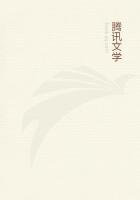Ishmael was thus born without a special word or promise of God, at the mere request of Sarah. God did not command Abraham to take Hagar, nor did God promise to bless the coalition. It is evident that Ishmael was the son of Abraham after the flesh, and not after the promise.
In the ninth chapter of the Epistle to the Romans St. Paul advances the same argument which he amplifies into an allegory in writing to the Galatians. There he argues that all the children of Abraham are not the children of God. For Abraham had two kinds of children, children born of the promise, like Isaac, and other children born without the promise, as Ishmael. With this argument Paul squelched the proud Jews who gloried that they were the children of God because they were the seed and the children of Abraham. Paul makes it clear enough that it takes more than an Abrahamic pedigree to be a child of God. To be a child of God requires faith in Christ.
VERSE 24. Which things are an allegory.
Allegories are not very convincing, but like pictures they visualize a matter. If Paul had not brought in advance indisputable arguments for the righteousness of faith over against the righteousness of works this allegory would do little good. Having first fortified his case with invincible arguments, he can afford to inject this allegory to add impressiveness and beauty to his presentation.
VERSES 24, 25. For these are the two covenants; the one from the mount Sinai, which gendereth to bondage, which is Agar. For this Agar is mount Sinai in Arabia.
In this allegory Abraham represents God. Abraham had two sons, born respectively of Hagar and Sarah. The two women represent the two Testaments. The Old Testament is Mount Sinai, the bondwoman, Hagar.
The Arabians call Mount Sinai Agar. It may be that the similarity of these two names gave Paul his idea for this allegory. As Hagar bore Abraham a son who was not an heir but a servant, so Sinai, the Law, the allegorical Hagar, bore God a carnal and servile people of the Law without promise.
The Law has a promise but it is a conditional promise, depending upon whether people fulfill the Law.
The Jews regarded the conditional promises of the Law as if they were unconditional. When the prophets foretold the destruction of Jerusalem, the Jews stoned them as blasphemers of God. They never gave it any thought that there was a condition attached to the Law which reads: "If you keep the commandments it shall be well with thee."
VERSE 25. And answereth to Jerusalem which now is, and is in bondage with her children.
A little while ago Paul called Mount Sinai, Hagar. He would now gladly make Jerusalem the Sarah of the New Testament, but he cannot. The earthly Jerusalem is not Sarah, but a part of Hagar. Hagar lives there in the home of the Law, the Temple, the priesthood, the ceremonies, and whatever else was ordained in the Law at Mount Sinai.
I would have been tempted to call Jerusalem, Sarah, or the New Testament. I would have been pleased with this turn of the allegory. It goes to show that not everybody has the gift of allegory. Would you not think it perfectly proper to call Sinai Hagar and Jerusalem Sarah? True, Paul does call Sarah Jerusalem. But he has the spiritual and heavenly Jerusalem in mind, not the earthly Jerusalem. Sarah represents that spiritual Jerusalem where there is no Law but only the promise, and where the inhabitants are free.
To show that the Law has been quite abolished, the earthly Jerusalem was completely destroyed with all her ornaments, temples, and ceremonies.
VERSE 26. But Jerusalem which is above is free, which is the mother of us all.
The earthly Jerusalem with its ordinances and laws represents Hagar and her offspring. They are slaves to the Law, sin and death. But the heavenly Jerusalem is Sarah, the free woman. This heavenly Jerusalem is the Church, that is to say the number of all believers throughout the world, having one and the same Gospel, one and the same faith in Christ, one and the same Holy Ghost, and the same sacraments.
Do not mistake this one word "above" to refer to the triumphant Church in heaven, but to the militant Church on earth. In Philippians 3:20, the Apostle uses the phrase: "Our conversation is in heaven," not locally in heaven, but in spirit. When a believer accepts the heavenly gifts of the Gospel he is in heaven. So also in Ephesians 1:3, "Who hath blessed us with all spiritual blessings in heavenly places in Christ." Jerusalem here means the universal Christian Church on earth.
Sarah, the Church, as the bride of Christ bears free children who are not subject to the Law.
VERSE 27. For it is written, Rejoice, thou barren that bearest not; break forth and cry, thou that travailest not: for the desolate hath many more children than she which hath an husband.
Paul quotes the allegorical prophecy of Isaiah to the effect that the mother of many children must die desolately, while the barren woman shall have an abundance of children. (Isaiah 54:1.) He applies this prophecy to Hagar and Sarah, to the Law and the Gospel. The Law as the husband of the fruitful woman procreates many children. For men of all ages have had the idea that they are right when they follow after the Law and outwardly perform its requirements.
Although the Law has many children, they are not free. They are slaves. As servants they cannot have a share in the inheritance, but are driven from the house as Ishmael was cast out of the house of Abraham. In fact the servants of the Law are even now barred from the kingdom of light and liberty, for "he that believeth not, is condemned already." (John 3:18.) As the servants of the Law they remain under the curse of the Law, under sin and death, under the power of the devil, and under the wrath and judgment of God.















